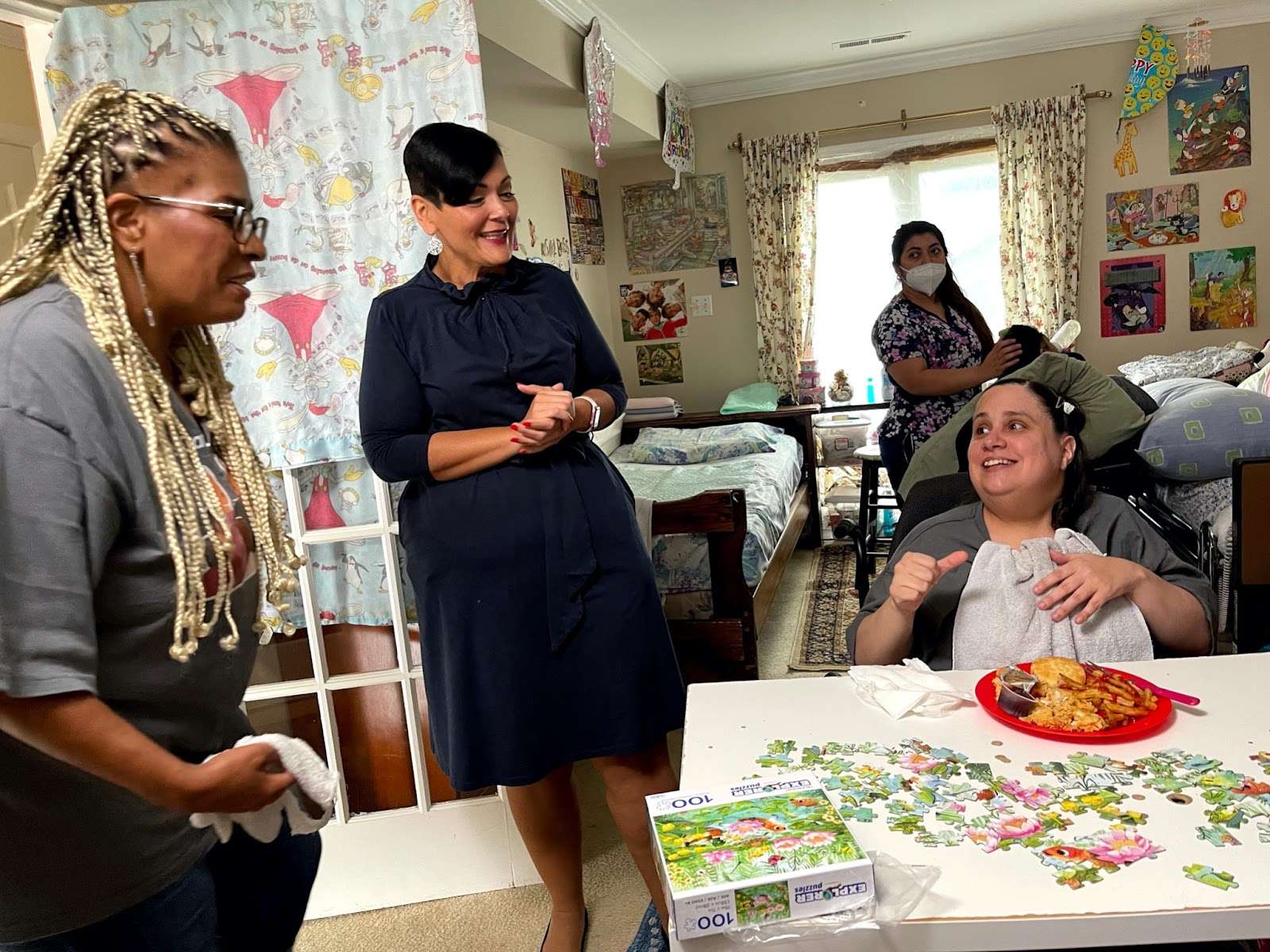Op-ed by Rena Bumbray-Graves, home care worker and SEIU Virginia 512 member. Originally published in Common Dreams.
My adopted sister, Leia, depends on me for everything. Leia has spina bifida and cerebral palsy, and it’s my job as a home care worker to make sure her needs are met. Over the course of any given day, I move Leia from her bed to her wheelchair, fold her laundry, prepare her lunch, wash her dishes, brush her teeth, and teach her a few new words. Leia and I are incredibly close, and I’m proud to be able to earn my living by providing the care she needs and deserves.
Across the commonwealth, 43,000 home care workers provide similar services on a daily basis. We work day and night helping seniors and people with disabilities—sometimes our own family members, sometimes others’ loved ones—go about their lives.
I chose this work because I am honored to carry on the tradition of Black women caregivers; to this day, home care workers are largely Black women and other women of color. Despite the essential labor we provide, we’re still not respected, protected and paid like we ought to be. The average home care worker in Virginia makes just over $10 per hour, putting us among the lowest paid workers in our economy. And there are millions of people like Leia who depend on care workers to survive, but cannot access the care they need.
We all need care at some point in our lives. This is not an issue any of us can afford to ignore. There are already 1.3 million Virginians over the age of 65, and by the end of the decade, seniors will make up almost one fifth of our population. Nearly 200,000 Virginians need assistance with bathing and dressing themselves. But there are fewer than 50,000 home care workers to meet this demand.
Failing to repair our broken care system hurts all of us. A shortage of accessible care for people who need it is nothing short of a crisis, and it leads to people (mostly women) leaving the paid workforce to provide care.
It’s time to stop treating care like a problem for individuals or families to figure out on their own. We need a bold commitment from lawmakers to invest in care workers and build a care system that will meet the rising demand for care.
That’s why workers like me are calling on lawmakers to transform home care jobs into good union jobs that pay a living wage. It’s what home care workers deserve, period. But it’s also how we attract more workers into this industry, which will expand access to those who need our care.
After decades of raising this demand, we are finally being heard. President Joe Biden has proposed a care plan that includes as close to $400 billion as possible in our home care system, a total that would create a million living-wage care jobs across the country, including 190,000 over 10 years in Virginia, and turn them into good, union jobs. It’s urgent that Congress pass this plan.
Our lawmakers here in Virginia can also take steps to attract and retain more professional home care workers. The number one way they can do that is by letting us have a seat at the table through collective bargaining. That way we can negotiate better wages, benefits and protections on the job.
I’m lucky to be part of my union, SEIU Virginia 512. United across many different races and backgrounds, we’ve been able advocate for life-changing raises and other benefits we need to support our families. Being part of a union means I don’t only care for Leia; I also care for myself and my fellow home care workers, fighting to ensure we have our needs met, too. No matter what language you speak or the color of your skin, all home care workers need to be able to put food on the table. But in Virginia and nationwide, the majority of home care workers are denied the opportunity to come together and advocate for what we need.
Home care workers have raised our voices and marched in the streets, demanding higher pay and a seat at the table through collective bargaining. Now it’s on lawmakers, in Richmond and the U.S. Capitol, to deliver for home care workers and everyone who depends on us.
I dream of a future for Virginia, and all across the United States, where care jobs are respected, well-paid, sought-after union careers; and where every person and every family can access the care they need, in the comfort of their own home, from a skilled home care worker.
Caring for Leia is not easy. It is challenging and time-consuming work. But it’s worth it because my work allows her to live with the dignity and respect every person deserves. We all deserve dignity, in our home and on the job, and that’s what this fight for a real seat at the table through collective bargaining is about.

